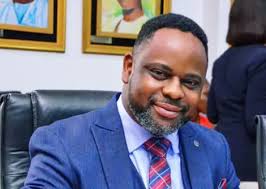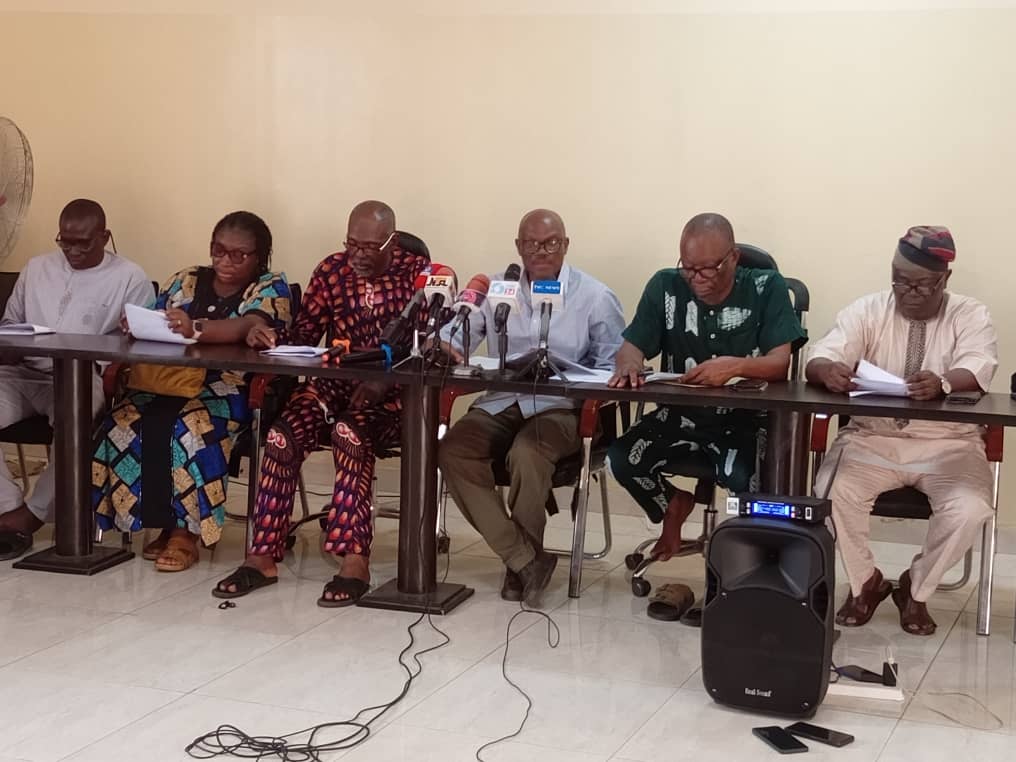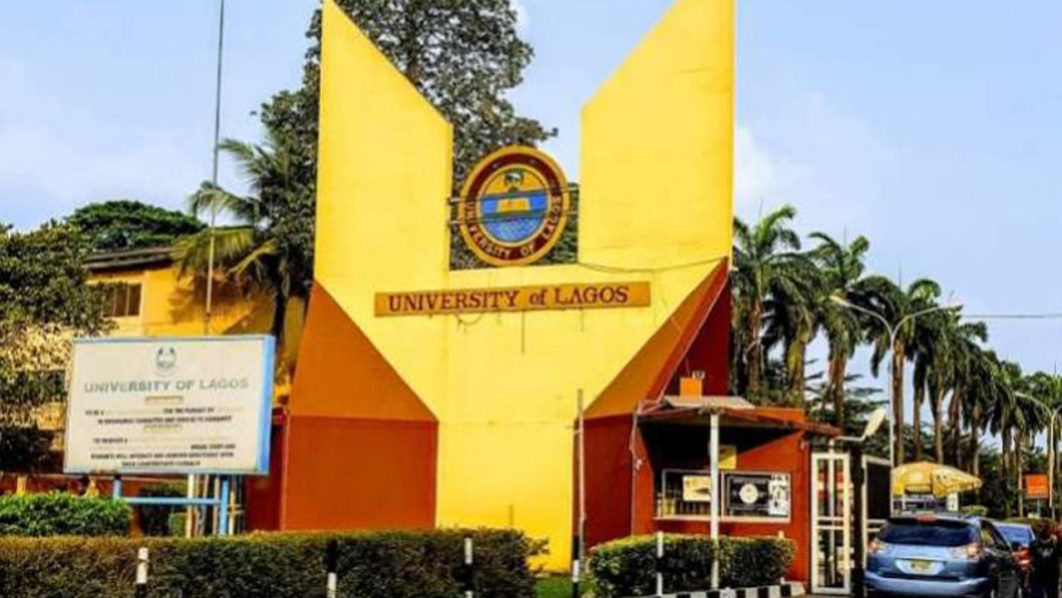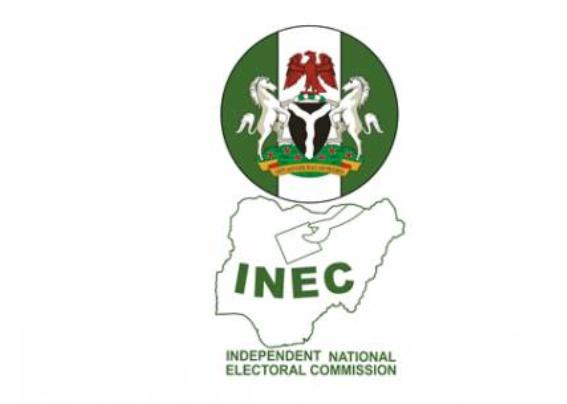Education
Osinbajo extolls UNILAG Law alumni
Vice President Yemi Osinbajo has praised the array of distinguished alumni of the Faculty of Law, University of Lagos (UNILAG) and their contributions to the development of the various sectors of the country.
Osinbajo gave the commendation at the UNILAG Law Alumni Dinner, themed: ‘The Great Homecoming’ which held on Saturday at Harbour Point, Victoria Island, Lagos.
“The reputation and goodwill of the alumni is the rationale for the prestige of the school.
“We must all be proud of the remarkable array of alumni and their great achievements not just in Law but practically in all fields of human endeavour.
“It is to time to boast about the weight of the UNILAG, the Faculty of Law and its contributions to the development of the society and country at large,” he said.
The vice president said that the quality of alumni from the prestigious university had led precedence in defining legal practice in the country.
“At the apex of the Nigerian judiciary is our Honourable Justice Kudirat Kekere-Ekun, last year she was joined by Justice Helen Ogunwunmiju, both alumni of the UNILAG Faculty of Law.
“At the Court of Appeal, we have so many such as Justice Patricia Mahmoud who served as Ag. Chief Judge of Kano State.
“Also the immediate past Chief Judge of Edo, Justice Esther Edigin, who was my classmate and the current Chief Judge of Lagos State, Justice Kazeem Alogba is also a proud alumnus,” he said.
Osinbajo also listed Justice Oyebiola Oyewunmi of the Industrial Court as a proud alumnus.
“In the Lagos State Judiciary alone, we have so many justices such as Justice Yetunde Adesanya, Justice Adenike Coker, Justice Atinuke Oluyemi, Justice Adedayo Akintoye, Justice Idowu Alakija among others.
“In the private bar, we have Mr Wole Olanipekun, and possibly the wealthiest of lawyers in the country,” he said.
The VP said that so many alumni had formed law firms of great reputation and recognition of their contributions to society.
“For example, we have the late Bankole Aluko, SAN, who co-founded one of the leading law firms in Nigeria today, Aluko and Oyebode.
“Then there is also Femi Olubanwo, co-founder of Banwo and Ighodalo who recently won the Nigerian Law firm of the year award,” he said.
Osinbajo added that himself as the vice president of the country and the Speaker of the House of Representatives, Mr Femi Gbajabiamila, were both alumni of the great institution.
“We also several former governors such as Gov. David Jemibewon of Oyo State and Gov. Gabriel Suswam of Benue State.
“Also, the Deputy Chief of Staff to the President, Mr Ade Ipaye and the the Special Adviser to the President on Ease of Doing Business, Dr Jumoke Oduwole are alumni.
“Both were former students and lecturers in the Faculty of Law, UNILAG and Oduwole is the holder of the Prince Claus Chair from 2013 to 2015,” he said.
The VP said that traditional rulers were not also left out of the UNILAG Faculty of Law alumni mentioning the Oba of Lagos, Oba Rilwan Akinolu, former AIG.
Osinbajo said that the institution had also produced several attorney generals such as the likes of Mr Kanu Agabi, Mr Christopher Ojo, Mr Adetokunbo Kayode and Mr Odein Ajumogobia.
“Many SANs have excelled in different ways such as Mr Fidelis Oditah who is possibly the only one of us who is both Queen’s Council and SAN,” he said.
The VP also recalled when Adokiya Amiesimaka during his days as an undergraduate played for the Sharks FC, Rivers and also won gold at the 1980 African Cup of Nations.
He also said that the entertainment industry and fashion industry had not been sparred the creative disruption made by their alumni especially the ladies who are making brilliant contributions in the industries.
“Our own Bolanle Austin-Peters, founded Nigeria’s first privately owned theatre, Terraculture; her film on the Ebola outbreak, ’93 Days’ is the highest nominated film in the 2017 African Movie Academy Awards.
“In the fashion world, Omoyemi Akinrele is raising the Nigerian flag high. She is the initiator of the Lagos Fashion Week.
“So our people are everywhere and I can keep on bragging about them until forever,” Osinbajo said.
Also, Mr Ajumogobia who served respectively as the minister of foreign affairs and minister of petroleum praised the multiple role played by alumni in the country and beyond.
“We have achieved immeasurable successes in careers as diverse as our country,” he said. (NAN)
Education
We will Capture Out-of-school Children in Our Education Programmes – Enugu Govt

The Enugu State Commissioner for Education, Prof Ndubueze Mbah We will Capture Out-of-school Children in Our Education Programmes – Enugu Govt says the state government will redouble efforts to capture out-of-school children in its programme.
The commissioner gave the assurance on Tuesday in Enugu during the celebration of the 2025 Children’s Day held at the Nnamdi Azikiwe Stadium, Enugu.
Mbah said that the state was working in collaboration with community and faith- based institutions to ensure that no child was neglected or forgotten.
He encouraged them to be calm as they were not forgotten noting that they would be remembered through inclusive education programmes.
Mbah said that education was their right adding that the present administration was committed to making it a reality for them.
He, however, said that every child irrespective of status, gender, location or ability was valued and their welfare would be taken into consideration.
He said that they deserved to grow in a safe, nurturing environment with opportunities to dream and become successful as this administration would continue to protect their rights, well-being, and empower them through education, healthcare, and innovation.
“As we celebrate international children’s day today, remember that you are the leaders of tomorrow.
“Let your voices be heard, your talents be seen, and your dreams shall come through.
“To our school children, we commend your efforts, resilience, and passion for learning. You are the builders of the Enugu State.
“Government investments in smart schools, teacher training, digital tools, and innovation are for you to be equipped with skills for a future that has already begun,” he said.
In the same vein, the Secretary to Enugu State Government, Prof. Chidiebere Onyia, encouraged every child in the state to remain focused and work hard to attain their desired goal.
Onyia said that with the introduction of Smart Schools in 260 political wards of the state, every child in the state would soon compete with their counterparts globally.
He emphasised that the administration had investment heavily in education sector to ensure that both privileged and non privileged children are equipped with basic skills and knowledge.
The event featured march past by various public and private primary and secondary schools in the state. (NAN)
Education
Strike Looms as ASUU Accuses FG of Endless Agreement Negotiations, Others

By David Torough, Abuja
The Academic Staff Union of Universities (ASUU) has once again raised the alarm over the Federal Government’s persistent failure to honour past agreements, warning that another nationwide strike may be imminent.
ASUU’s new President, Professor Chris Piwuna, at a press conference in Abuja on Friday criticised the government’s inaction on critical issues affecting Nigerian universities.
Piwuna demanded the immediate implementation of all Memoranda of Understanding (MoUs) and Memoranda of Action (MoAs) signed since 2013.
ASUU emphasised that fixing Nigeria requires fixing its universities, which are plagued by poor funding, stalled agreements and government neglect.
The Union also demanded the release of withheld salaries from the 2022 strike and payment to lecturers on part-time and sabbatical appointments affected by the IPPIS payroll system, while condemning political interference in university administration, unlawful appointments, and the undermining of institutional independence.
It further called for an education summit, proper implementation of past agreements, and a stop to the misuse of TETFund resources. It warned it will not remain passive while its members’ rights are trampled.
ASUU urged the government to resolve all outstanding issues to avoid further disruption. While open to dialogue, the union signaled potential industrial action if demands are ignored, reaffirming its commitment to the struggle for quality education.
“Almost three decades since Nigeria’s return to civilian governance, it is not yet Uhuru. The country is still pathetically trapped in the web of multifaceted political malfeasance graphically sign-posted by prebendal politics, mindless manipulation of electoral processes, brazen nepotism, and deliberate subversion of people’s will at every level of governance.
“The sum total of all these is that transparency and accountability have become rare commodities in the hands of the managers of the Nigerian state. Consequently, the generality of citizenry have become despondent, having lost hope and faith in government and its agencies.
“If given the desired attention, Nigeria’s universities should provide the solution ground to solving its multi-faceted and multi-dimensional problems. ASUU has remained focused in the struggle for improved funding and revitalization of these institutions.
“A starting point to achieve this noble goal is to prevail on government to address all outstanding issues in our previous engagements. This will create a conducive atmosphere for addressing the welfare issues of Nigerian academics for the optimal discharge of their statutory responsibilities as the think-tank of the country and mentors for future leaders in all aspects of national development. ASUU remains open to discussion in this respect.
“However, the Union would not continue to look helpless while the rights of its members are being trampled upon and washed away with reckless abandon.”
ASUU stated that the level of implementation of the 2009 FGN/ASUU Agreement is not encouraging, saying that although a few issues are partially implemented, many remain unaddressed.
These, it said include the conclusion of the renegotiation of the 2009 Agreement based on the Nimi Briggs Committee’s draft agreement of 2021; release of withheld three-and-a-half months’ salaries due to the 2022 strike; release of unpaid salaries for staff on sabbatical, part-time, and adjunct appointments affected by the Integrated Payroll and Personnel Information System (IPPIS); release of outstanding third-party deductions such as check-off dues and cooperative contributions; funding for the revitalization of public universities; payment of Earned Academic Allowances (EAA); concerns over the proliferation of universities by federal and state governments; non-constitution of some universities’ governing councils; and adoption of the University Transparency and Accountability Solution (UTAS) in place of IPPIS.
It noted that the government agreed to mainstream the EAA into salaries with the creation of an irregular allowance as a budget line in the 2026 Budget, after releasing N50 billion for the backlog and budgeting N29 billion for the payment of 2025 Earned Academic Allowances and agreed to release N150 billion as a revitalisation fund within four weeks from April 2025.
“However, we are still waiting for government to fulfil these promises. The Union has also reached an understanding with the Yayale Ahmed-led Committee, following the review of the report of the Nimi Briggs-led FGN-ASUU Renegotiation Committee in December 2024. Again, ASUU members have been left in limbo, waiting for the signing of an agreement five months after.
“Delegates at the UNIBEN National Delegates Conference exhaustively evaluated the government’s disposition in resolving outstanding issues with the Union and expressed regrets that nothing has significantly changed in the last two years.
“The irreducible minimum that can guarantee industrial harmony in the Nigerian University System (NUS) is for government to speedily address all outstanding issues including conclusion of the renegotiation of the 2009 FGN/ASUU Agreement, payment of the withheld three-and-a-half months’ salaries, release of the backlog of promotion arrears, payment of withheld salaries of sabbatical and part-time lecturers on account of not signing into the discredited IPPIS, and addressing the unjust victimization of ASUU leaders and members in some state universities.
“Beyond these, we demand a faithful implementation of all issues arising from our previous Memoranda of Understanding (MoUs) and Memoranda of Action (MoAs) government signed with ASUU since 2013.”
ASUU also called on state governors and visitors to these universities to, without further hesitation, resolve lingering issues and reinstate its members without delay in the interest of justice and industrial peace.
On the erosion of university autonomy, the union expressed deep concern. “ome recent developments in Nigeria’s public universities are of grave concern to our Union. We are discomfited by the ongoing attempts to completely erode the autonomy of public universities by the political class and the bureaucrats.”
community
UTME: JAMB To Hold Additional Mop-up Exam for Absent Candidates

Joint Admissions and Matriculation Board (JAMB) says it will conduct additional mop-up examinations for candidates who missed the 2025 Unified Tertiary Matriculation Examination (UTME).
JAMB Registrar, Prof. Is-haq Oloyede, stated this on Wednesday in Abuja at a meeting with key stakeholders to address the challenges encountered during the 2025 UTME.
Oloyede said that the board would accommodate the estimated 5.
6 per cent of candidates who missed the examination by organising a special mop-up exercise.He said that the board had extended the opportunity to all the affected candidates, regardless of the reasons for their absence.
“Normally, we hold one mop-up nationwide for those with one issue or the other.
“But this time, we are creating a new mop-up. Even those who missed the earlier examination due to absence, we will extend this opportunity to them.
“It is not that we are doing something extraordinary; in class, you make up an examination when students miss it for one reason or the other; we just don’t allow abuse of that.
“So we will allow all the candidates who missed the main examination for any reason to take part in this mop-up,” he said.
Oloyede criticised some public commentators who misunderstood and misrepresented the role of UTME, while clarifying that UTME was a placement test and not an achievement test.
According to him, the purpose of the examination is to rank candidates for available spaces in institutions and not to measure intelligence or overall academic potential.
The registrar further stated that high UTME score was not the sole determinant of admission, adding that combined performance, including post-UTME scores and school assessments, could significantly affect a candidate’s ranking.
While acknowledging the emotional strain experienced while announcing the UTME results, he noted that this was not indicative of an institutional weakness.
He expressed JAMB’s commitment to resolving issues affecting the examination process, even as he rejected comments suggesting that the administrative failure was due to incompetence or ethnic bias.
“I want to say this clearly, particularly because I accepted responsibility, not because I do not know how to do the work.
“I say it for the fourth time that no conspiracy theory is relevant to this case.
“Something happened; like people who have been doing something well for years and something just went wrong. That I should now throw them under the bus? No,” he said.
Oloyede, who frowned at those exploiting difficulties to promote ethnic or conspiracy-driven narratives, urged stakeholders to stop ethnic profiling in the education sector.
According to him, many of the criticisms of JAMB’s operations are rooted in ignorance.
The registrar, however, commended his team’s efforts, while also appreciating the resilience shown by candidates, many of whom, he said, had continued their exams, notwithstanding the various challenges. (NAN)




















